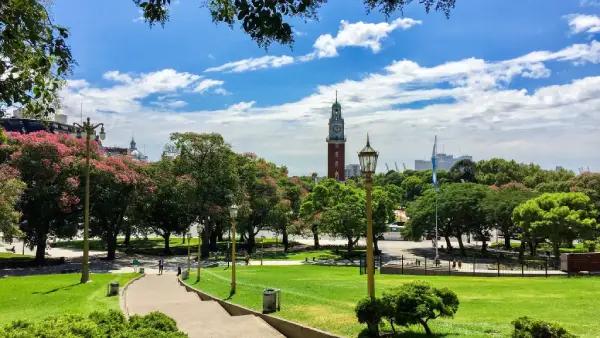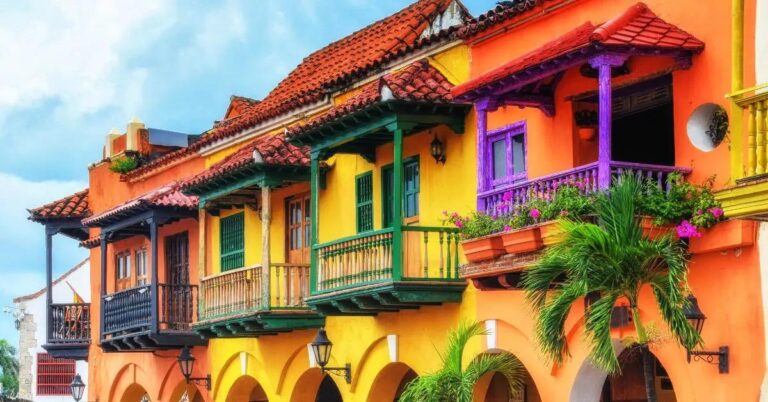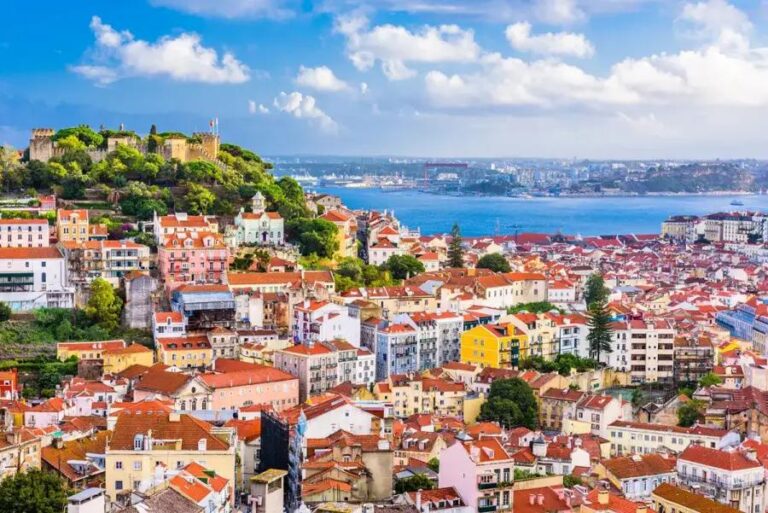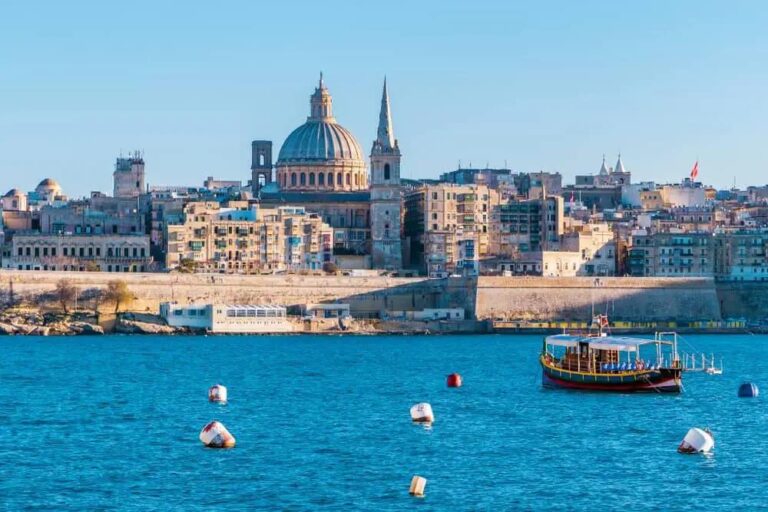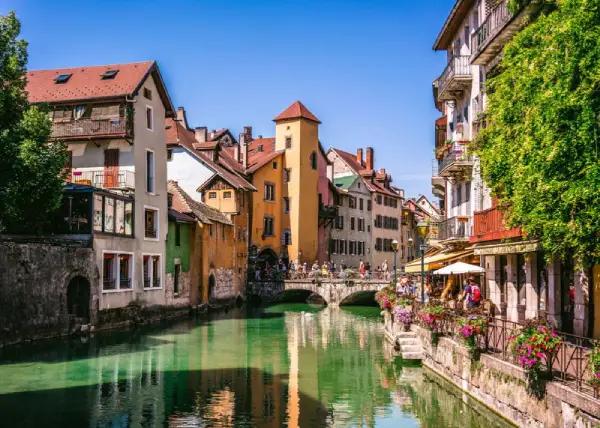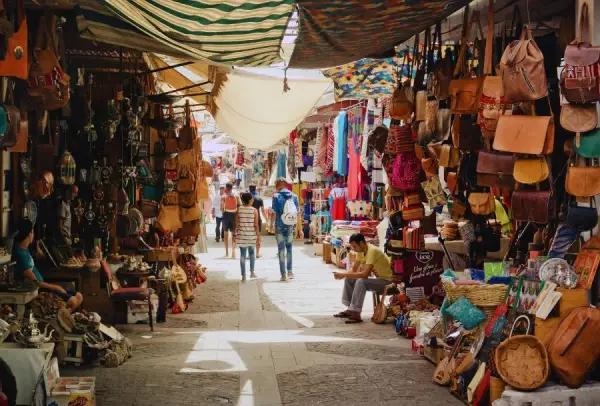TL;DR:
- Housing: Renting in Buenos Aires ($400-$700/month); buying ($2,000-$3,000/sq meter).
- Utilities: Electricity and water ($50-$100/month); internet/TV ($20-$40/month).
- Food: Groceries ($150-$300/month); dining out ($5-$20/meal).
- Transportation: Public transport monthly pass ($20); gas ($1/liter).
- Healthcare: Private insurance ($50-$100/month); lower-cost medications.
- Entertainment: Movie ticket ($5); cultural events ($10-$30); tango classes ($7/session).
- Top Retirement Cities: Buenos Aires (urban life); Mendoza (wine region); Córdoba (culture/historical sites); Rosario (river views).
- Financial Planning: Monthly expenses ($1,200-$1,800), social security collection in Argentina, retirees’ discounts, manage finances in pesos.
- Advisors: Utilize expat-friendly financial advisors for local and U.S. tax laws.
Thinking about retiring in Argentina but unsure what to expect cost-wise? You’re not alone! Argentina offers an enticing blend of affordable living and rich culture, making it a top choice for retirees. In this post, I’ll break down the main living expenses—from housing and utilities to food and healthcare. Whether you’re considering bustling Buenos Aires or tranquil Mendoza, here’s everything you need to plan your budget and enjoy a smooth transition.
What are the Main Living Expenses for Retirees in Argentina?
Housing Costs: Renting vs. Buying Properties
Renting a small apartment in Buenos Aires can cost around $400 to $700 per month. Buying a property is more expensive, but it can be a good investment. The price per square meter can vary, but expect to pay $2,000 to $3,000 in the city. In smaller towns, both rent and property prices are lower, making it attractive for those on a tight budget.
Utility Costs: Electricity, Water, Internet, and TV
Utility bills in Argentina can add up quickly. Electricity and water bills will cost about $50 to $100 each month. Internet and TV packages range from $20 to $40 per month. Always check if these costs are included in the rent.
Food Expenses: Grocery Shopping and Dining Out
Food costs in Argentina are reasonable. Monthly groceries for one person can cost $150 to $300. Dining out offers variety; a basic meal costs around $5, while a three-course meal at a nice restaurant can cost up to $20.
Transportation Costs: Public Transport and Gas Prices
Public transportation in Argentina is affordable and efficient. A monthly pass in Buenos Aires costs about $20. If you prefer driving, gas prices are around $1 per liter. Owning a car also means additional costs for insurance and maintenance.
Healthcare Costs: Medical Insurance and Pharmaceuticals
Healthcare in Argentina is of good quality and relatively low cost. Private health insurance costs about $50 to $100 per month. Medications are cheaper compared to the U.S., but prices vary based on need and availability.
Entertainment Costs: Dining Out, Cultural Events, and Social Activities
Entertainment and leisure activities are abundant and affordable. A movie ticket costs around $5, while a ticket to a cultural event or concert can range from $10 to $30. Social activities, like tango classes, might cost around $7 per session.
What are the best cities to retire in Argentina?
Buenos Aires offers a vibrant urban life with rich amenities. It boasts a mix of historical sites and modern living. You will find great health care and various cultural events. The urban area is alive with energy and offers many neighborhoods with affordable housing. Safety is prioritized in expat neighborhoods, and retirees feel secure. The climate here has warm humid summers and mild winters.
Mendoza is well-known for its wine region. It promises beautiful landscapes filled with vineyards and mountains. Wine lovers will enjoy the local wine culture. Mendoza offers a peaceful life with affordable housing options. The area enjoys a warm, dry climate thanks to the Andes mountains. Constant sunshine adds to its appeal for retirees.
Córdoba features a lively culture mixed with historical sites. It’s known for its colonial architecture and vibrant festivals. The city’s educational hub also means good healthcare and diverse culture. Córdoba offers cost-effective living and welcoming expat communities. Warm summers and mild winters are the norm.
Rosario is another city to consider. It is budget-friendly and has a growing expat community. The city offers beautiful river views and a relaxed pace of life. Rosario has a warm, temperate climate with great outdoor activities. The housing options are plenty and affordable.
For those preferring a slower pace, smaller towns and rural areas offer tranquility and a lower cost of living. Places like Bariloche and Salta provide scenic beauty and serenity. These areas have fewer amenities but are safer and more peaceful. The climate varies; some regions have cooler temperatures year-round while others are warmer.
Retiree safety is essential. Safety considerations should always be a priority. While larger cities have more safety measures, rural areas tend to be more secure due to lower crime rates.
The climate and weather of Argentina are diverse. From the warm summers and cool winters of Buenos Aires to the sunny dry weather of Mendoza, you can choose what suits you best. Each region provides a distinct atmosphere, letting you pick the climate you prefer.
What Financial Planning Should Be Considered for Retiring in Argentina?
Retiring to Argentina can be a dream come true, but you need to plan well. Let’s dive into the key aspects of financial planning for retirees in Argentina.
Understanding Argentina’s Cost of Living: Detailed Breakdown
First, know the cost of living. It includes rent, food, health care, and entertainment. In Buenos Aires, you will spend more than in rural areas. Typical monthly expenses can range from $1,200 to $1,800, depending on your lifestyle.
Using Retirement Calculators: Budget and Expense Planning
Use retirement calculators to plan your expenses. They help track your income, taxes, and savings. You can adjust numbers to see how much you need each month.
Social Security and Pension Planning: Tax Implications and Collection
Does Argentina tax US pensions? Yes, Argentina taxes foreign pensions. But you might avoid double taxation if there’s a treaty in place. Can you collect Social Security in Argentina? Yes, you can receive your checks in Argentina. But, factor in any tax obligations.
Financial Benefits for Retirees: Discounts and Incentives
Argentina offers retiree discounts on public transport, museums, and theaters. While incentives are less common, some provinces have specific offers.
Currency Exchange: Managing Finances in Argentine Pesos
Currency exchange is important. Use local banks to convert dollars to pesos. Keep track of rates, as they can fluctuate.
Creating a Monthly Budget: Typical Expenses and Savings Strategies
Create a monthly budget listing rent, groceries, and utilities. Plan to save for unexpected costs. This tool helps you stay within your means.
Financial Advisory Services: Local and Expat-Friendly Options
Seek financial advice from local experts. Expat-friendly services can help navigate local laws and taxes. Find advisors familiar with both US and Argentine systems for the best tips.
Conclusion
We’ve covered Argentina’s living expenses, best retirement cities, and financial planning. Understanding housing, utilities, food, transport, healthcare, and entertainment costs helps plan your budget. Cities like Buenos Aires, Mendoza, and Córdoba offer unique benefits. Remember to consider financial tips for social security and budgeting. With these insights, you’re ready to enjoy a fulfilling retirement in Argentina.

